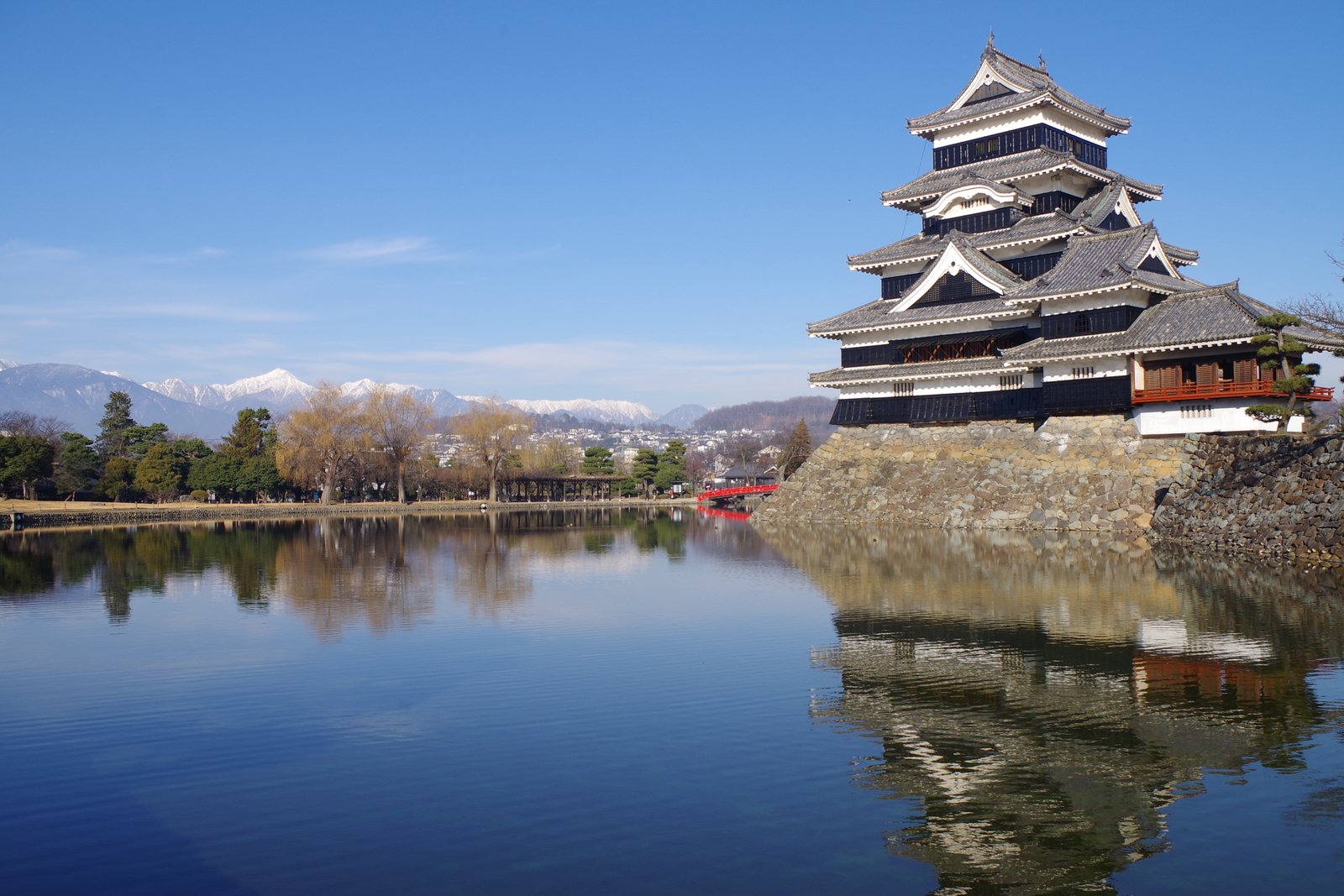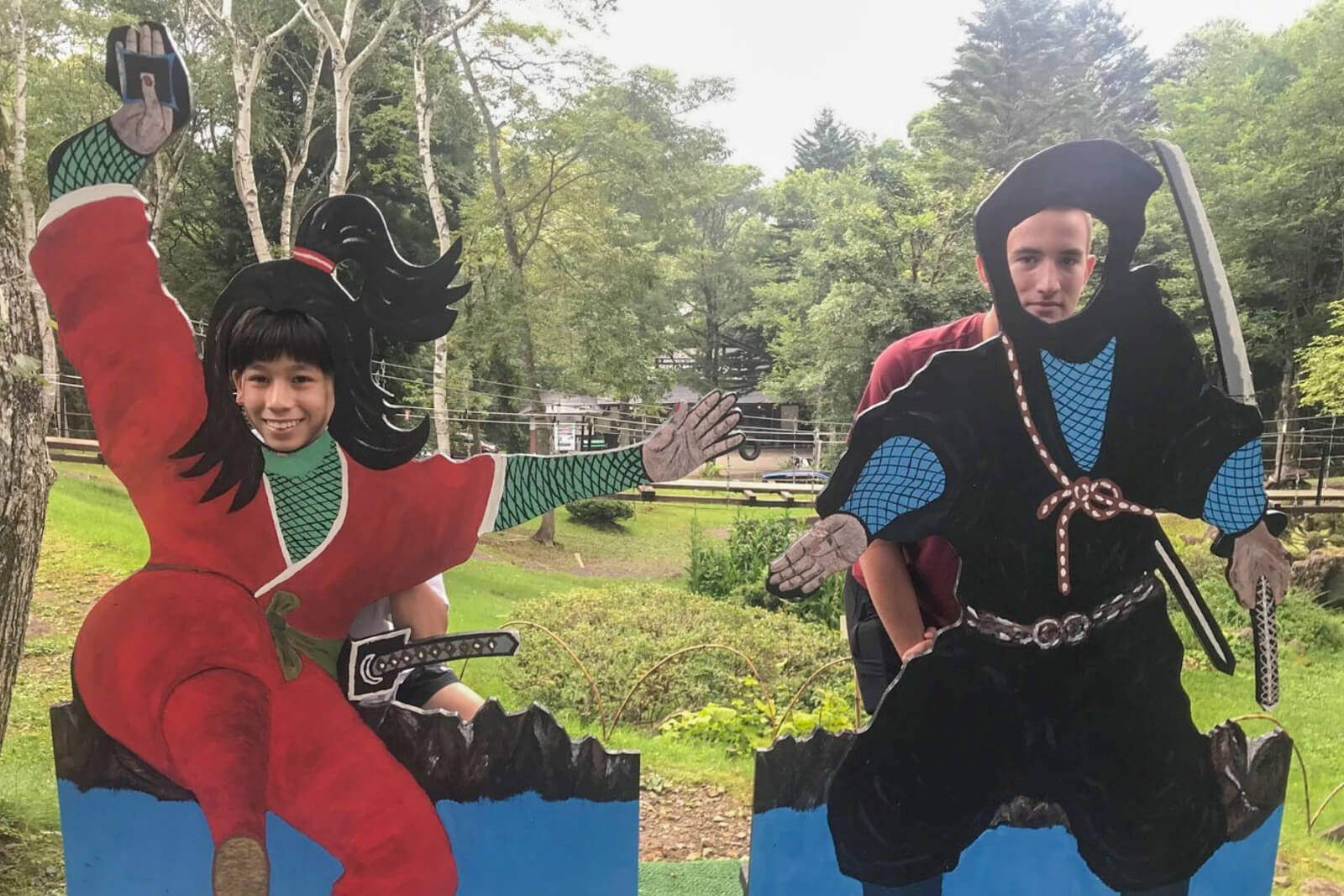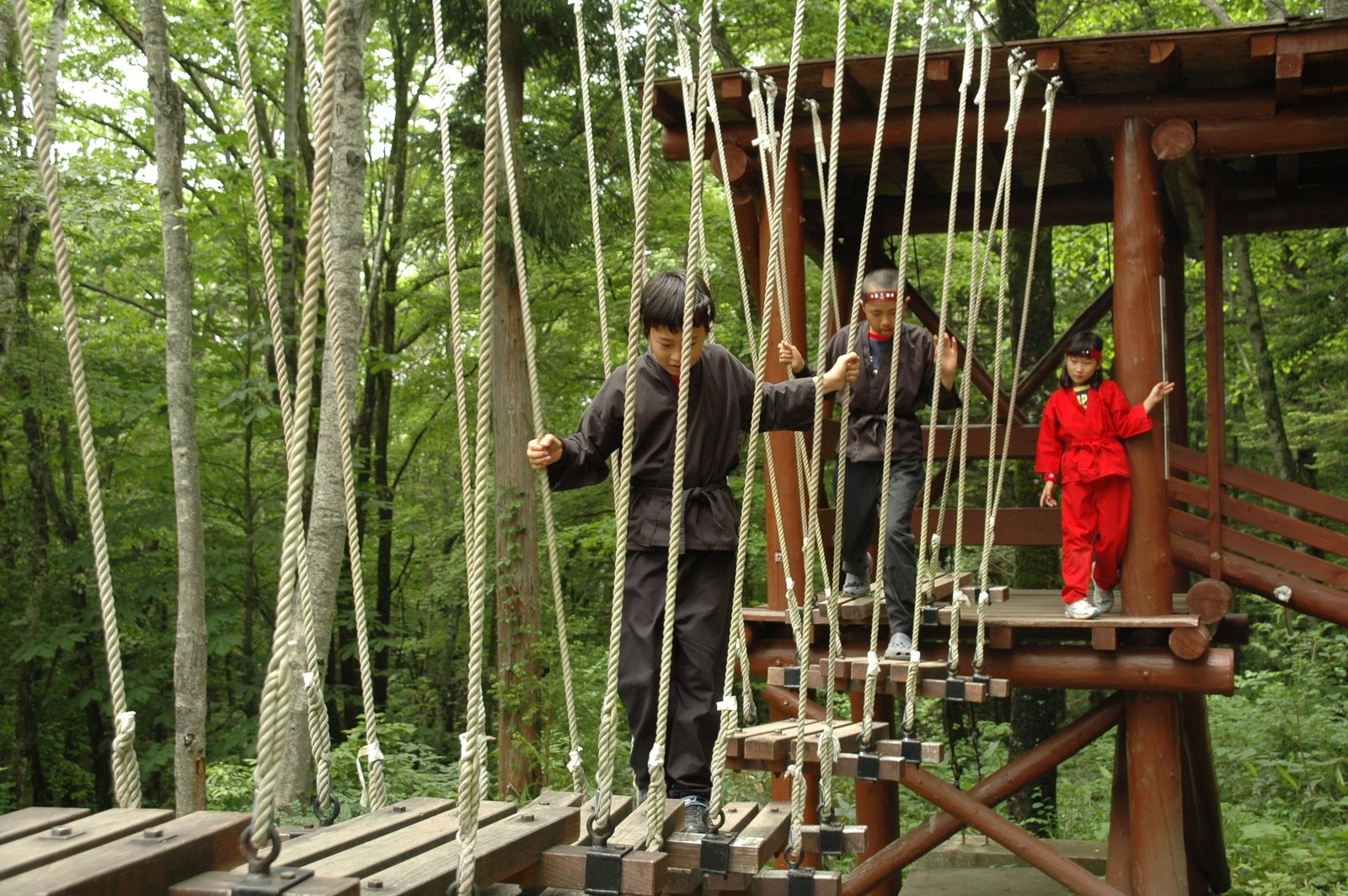
Less than an hour away from central Nagano City, Togakushi is a haven of outdoor activities such as trekking, snowshoeing, cross-country skiing, birdwatching, and camping.
It is also a spiritual destination, known as a “power spot” in Japan thanks to its five Shinto Shrines surrounded by majestic mountains and forests.
But that’s not all hiding in Togakushi. In fact, this once remote location was a training ground for ninja, who practiced a unique variety of martial arts called Togakure-ryu. Even today, there are places around Togakushi where you can get in touch with its ninja past.
Whether looking to train seriously, snap some photos of the kids in cute outfits or get away from the city, a Togakushi ninja experience is sure to enrich any Nagano trip.
Five Ways to Get in Touch with Ninja in Togakushi
The History of Togakushi's Ninja
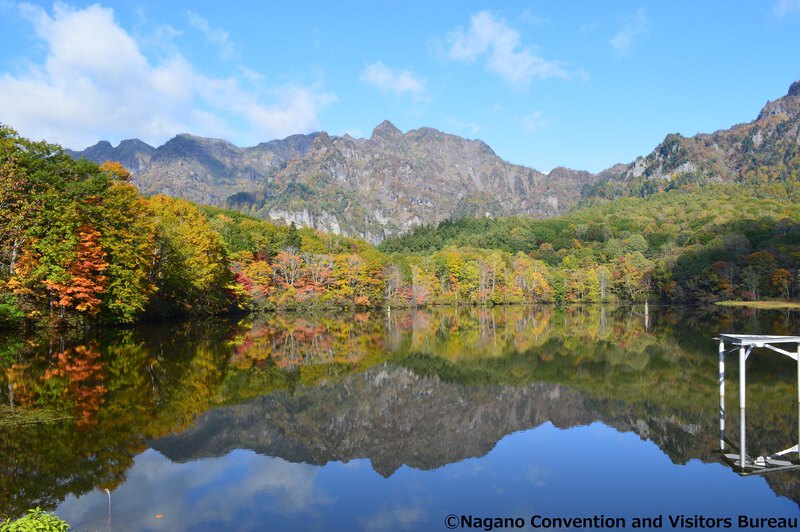
Togakushi’s name, meaning “Hidden Door,” comes from one of Japan’s Shinto legends. In that legend, the sun goddess Amaterasu and her brother, the god of storms and seas, argued frequently. One day, Amaterasu had enough and hid in a cave, plunging the world into darkness. The other gods danced outside the cave to coax her out until Amaterasu became jealous. When she cracked open the door, another god flung the door away. The door landed in Nagano and became present-day Mt. Togakushi.
Later, Mt. Togakushi became a center for Shugendo, a mix of Shinto and Buddhist religious beliefs whose followers sought supernatural powers through severe asceticism. Among other practices, worshipers meditated under ice-cold waterfalls, walked in the snow, and fasted in caves for weeks on end.
According to legend, the 12th century samurai warrior Daisuke Nishina combined samurai fighting styles with Shugendo to form Togakure-ryu Ninjutsu. The style has been passed on from master to master to this day. Today, around 20 dojos with 100 instructors teach Togakure-ryu Ninjutsu around Japan.
Ninja Experiences in Togakushi
The Togakushi Ninja Museum
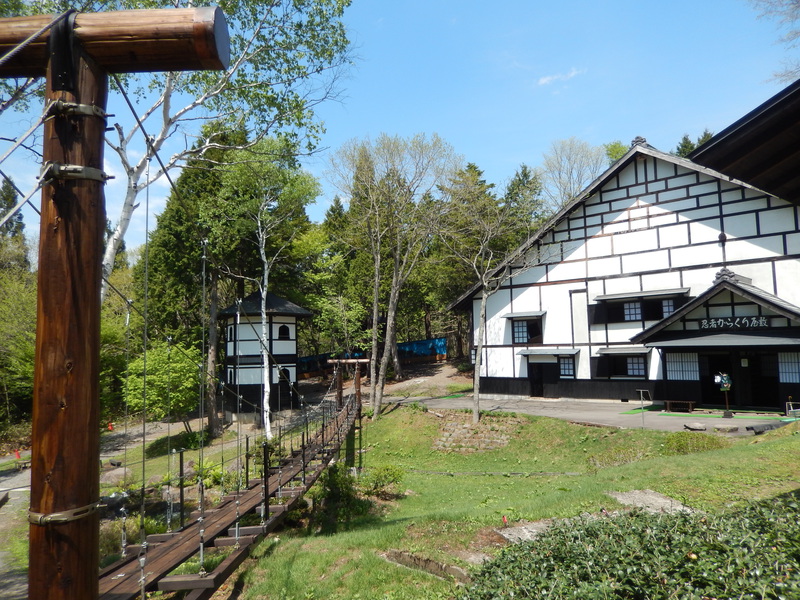
To learn more about the history of Togakushi's ninja and see the tools they used, visit the Togakushi Ninja Museum. English information is limited, but the museum contains hundreds of fascinating artifacts about the ninja and life in Togakushi Village. Visitors can also try their hand at Ninja skills, such as Shuriken throwing near the exhibit.
Another highlight of the Ninja museum is the Ninja House rigged with hidden doors, secret passages, and booby traps that are a fun experience for kids and adults alike.
Kids' Ninja Village
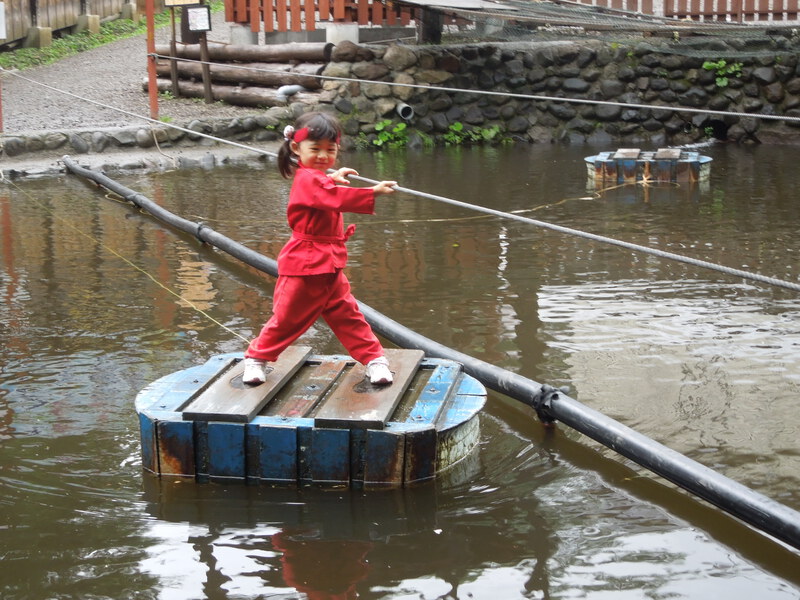
©Nagano Convention & Visitors Bureau
The Kids' Ninja Village (Chibikko Ninja Mura) is another great attraction for families. There are ninja outfits available for rent, and kids can go through various obstacle courses and challenges. There is a ropes course, jungle gym, rope towing across a pond, shuriken throwing, dart-blowing, a ninja house, and live demonstrations.
The park is only open from late April to late November.
Ninja Training
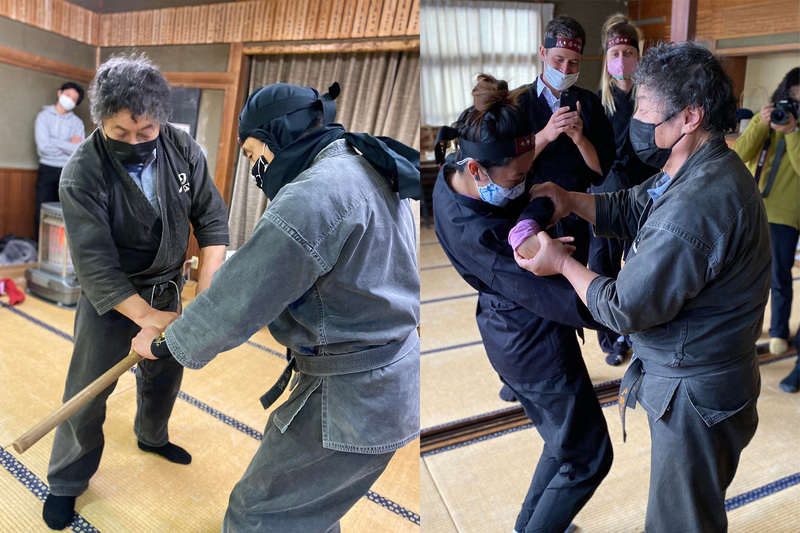
For those serious about Ninja training, there are lessons available from authentic Togakure-ryu ninjutsu practitioners. Becoming a ninja takes thousands of hours, but this is an excellent option if you are curious, want to start down the path, or compare training methods. The ninja training covers basics such as stance, defensive tactics, and trying out some weapons used by ninja.
Please note: the instructors practice weekly and are serious about their training. This experience is geared towards visitors who have practiced martial arts or those seriously interested in Ninjutsu.
Contact Togakushi Soba Yamaguchiya, whose owner is a ninja, to make a reservation. Make a reservation several days to weeks in advance to ensure availability.
Hiking and Mountain Climbing in Togakushi
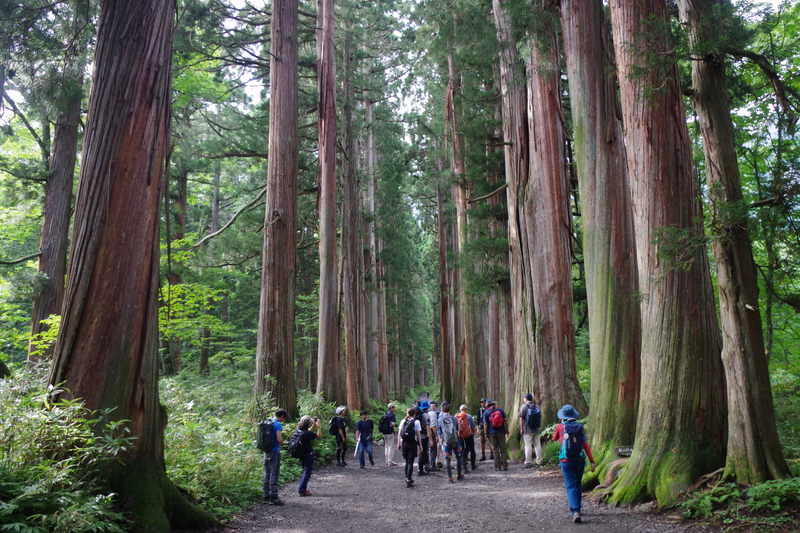
Although not technically a form of ninja training, hiking is a great way to stay physically fit and channel your inner ninja. There are various hikes around the five shrines of Togakushi with loops of different lengths. Recommended sightseeing locations include Chusha Shrine, Okusha Shrine, Hokosha Shrine, Zuishinmon Gate, the Togakushi Forest Botanical Garden, and Kagami Pond. Stop by the Togakushi Tourist Information Center to pick up a map before walking.
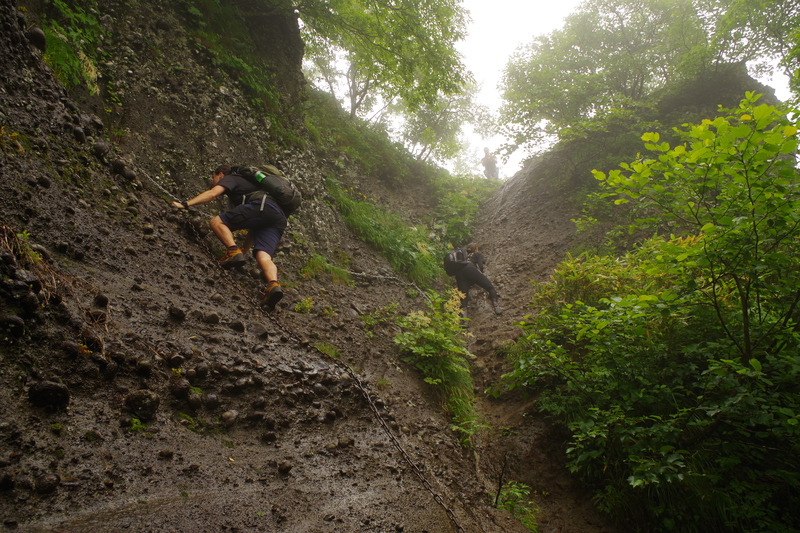
For the greatest challenge, climb Mt. Togakushi. Originating near the Okusha Shrine, the trail winds up Mt. Togakushi with occasional steep passes necessitating chains for climbing. Near the summit, the trail goes over a famous knife-edge point with sharp drop-offs on each side. The path is around a 7-hour loop and requires serious hiking equipment, so please arrive prepared when planning to summit Mt. Togakushi. The trail is only open in the summer due to heavy snowfall.
Eat Like a Ninja
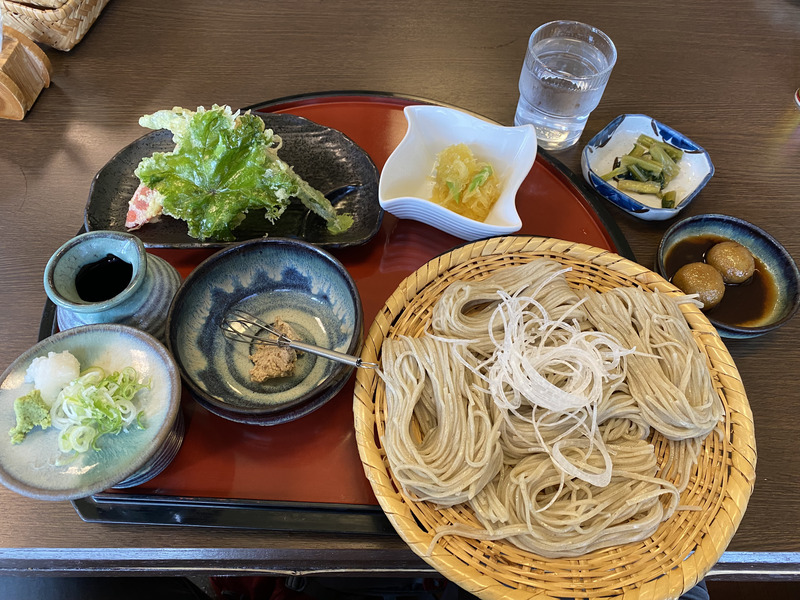
In Togakushi, even the food is connected to the ninja. Because Togakushi's mountainous terrain was not suited to rice cultivation, soba became the predominant food source. Soba was also a portable and nutritious food for ninjas and monks practicing in Togakushi's mountains. Nowadays, dozens of soba restaurants are scattered throughout Togakushi village. Cold noodles dipped in sauce with a side of tempura is refreshing in the summer, while piping a hot bowl of soba warms your whole body in the winter. Rumor has it that eating extra spicy Togakushi soba is even a form of ninja training.
Accommodation in Togakushi
Although there are no major hotel chains in Togakushi, various ryokans, minshuku, and shukubos provide a unique accommodation experience. Although one can find ryokans and minshuku throughout Japan, a shukubo is a unique traditional pilgrim's lodging used to house worshipers. In addition, some Shinto priests operate shukubos, so you can participate in a Shinto cleansing ceremony in the morning.
Conclusion
Togakushi is a hidden gem offering cultural, spiritual, natural, and culinary attractions year-round. Especially for those interested in ninja, Togakushi offers activities for all ages and physical abilities. To leave the beaten path and have a unique Nagano experience, make sure to add Togakushi to your next trip and become a ninja!

